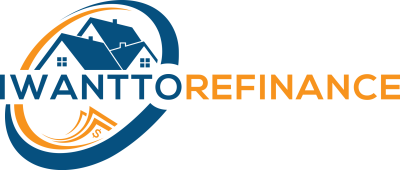Mortgages: An Overview
Key Takeaways:
A mortgage refers to a loan secured by real estate property.
Various institutions provide mortgages, including banks, credit unions, and mortgage companies.
In the event of a loan default, the lender can foreclose on the property and sell it to recover the loan amount.
Table of Contents
-
Definition: What Constitutes a Mortgage?
-
How Mortgages Operate
-
Different Types of Mortgages
-
Mortgage Rates
-
Obtaining a Mortgage
-
Mortgage FAQs
Definition: What Constitutes a Mortgage?
As previously mentioned, a mortgage is a type of loan that allows individuals to purchase real estate by using the property as collateral. Here are further details:
- A loan involves temporarily borrowing funds, typically requiring the borrower to repay the borrowed amount with additional interest as compensation for the lender.
- Real estate property can encompass various types of buildings, such as houses, condos, apartments, vacation homes, office buildings, or other commercial properties.
- Collateral refers to valuable assets pledged to ensure repayment of the loan. Should the borrower fail to make the agreed-upon payments, the lender possesses the legal right to claim the collateral. Collateral is also known as security for a loan.
How Mortgages Operate
Beyond the basic definition, understanding how mortgages work provides insights into the factors borrowers should consider when seeking such loans.
- Most mortgages are repaid in installments rather than in a lump sum. Given the high cost of real estate, mortgages are designed to be repaid over extended periods, with common durations of 30 years or even longer. These payments are typically made on a monthly basis.
- Borrowers compensate lenders by paying interest on the outstanding loan amount. Consequently, mortgage payments are divided into two portions: interest and principal. Initially, a significant portion of the payment consists of interest, as the borrower owes the most at the start of the loan.
- As the borrower makes payments, the principal amount gradually decreases. Consequently, the interest charged also decreases over time. This means that although mortgage payments usually remain constant throughout the loan term, more of the payment is allocated toward the principal as time progresses.
- The duration of the mortgage is known as the term. Longer-term mortgages spread repayment over more months, resulting in lower monthly payments. However, due to the extended repayment period, a long-term mortgage ultimately incurs higher costs over the loan's lifespan.
Different Types of Mortgages
Mortgages vary based on how interest and principal are structured, as well as the borrower's qualifications and risk level. Here are some common mortgage categories to be aware of, particularly for first-time mortgage seekers:
Fixed-Rate Mortgages
A fixed-rate mortgage involves an agreed-upon interest rate that remains constant throughout the loan term. With this type of mortgage, borrowers have predictable monthly payments and a clear understanding of the total cost over the scheduled loan period.
Adjustable Rate Mortgages (ARMs)
Interest rates fluctuate due to economic conditions, and an adjustable-rate mortgage reflects these changes. As a result, monthly payments can vary, and the total cost of the loan may change during the scheduled term. Falling interest rates benefit borrowers by reducing loan costs while rising rates make the mortgage more expensive.
Conventional Mortgages
Conventional mortgages are not part of government assistance programs and are offered by private lenders. While government-backed entities like Fannie Mae and Freddie Mac may support these lenders, approval for a conventional mortgage depends solely on the borrower's financial situation. Factors such as credit history, income, job stability, and debt-to-income ratio influence qualification and mortgage rates. Furthermore, conventional mortgages usually require a substantial down payment, affecting the interest rate.
FHA Mortgages
FHA mortgages are guaranteed by the Federal Housing Administration (FHA), enabling individuals who may not typically qualify for a
mortgage to access financing. This includes those with limited credit histories and individuals with modest down payment capabilities. FHA mortgages permit down payments as low as 3.5% of the home's purchase price but necessitate mortgage insurance payments, increasing the overall monthly payment.
Mortgage Rates
The interest rate on a mortgage significantly impacts the size of the monthly payment. In fact, over the loan's lifespan, interest costs often surpass the borrowed principal. Mortgage rates fluctuate due to various reasons, including inflation and economic concerns. While these broad economic factors influence interest rates, two elements that borrowers can influence are:
- Creditworthiness: This factor considers credit history, income, job stability, total debt, and financial obligations. A lower risk profile leads to lower interest rates.
- Mortgage Term: Longer repayment periods present a higher risk for lenders. Consequently, longer-term mortgages generally have higher interest rates than shorter-term ones. Although a 15-year mortgage may have a lower interest rate and result in lower overall costs, the higher monthly payments might be more challenging to afford.
Obtaining a Mortgage
Numerous lenders, such as banks, credit unions, and non-bank institutions, offer mortgages in today's competitive market. To secure a favorable deal, consider the following steps:
- Before beginning the mortgage search, gain a clear understanding of your requirements. Utilize a mortgage calculator to determine affordability and explore the desired mortgage type.
- Accumulate savings for the down payment, while simultaneously reviewing your credit record for errors and opportunities to improve your credit score.
- Avoid acquiring additional loans before applying for a mortgage, as this affects the debt-to-income ratio, potentially hindering loan qualification.
- If possible, postpone job changes shortly before applying, as lenders consider both income and job stability.
- When ready to apply, compare advertised rates online for the desired mortgage type to narrow down options. However, the final interest rate will ultimately depend on your unique circumstances.


